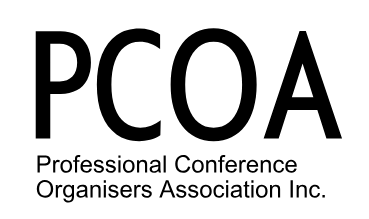 As PCOs, we’re inundated with new ideas on meeting design, learning styles, the latest tech tools and predictions of the ‘next big thing’. Deciding where to invest your time and energy can be a major challenge.
As PCOs, we’re inundated with new ideas on meeting design, learning styles, the latest tech tools and predictions of the ‘next big thing’. Deciding where to invest your time and energy can be a major challenge.
We know the meetings world is changing at pace. Whether we’re working in the international arena or flying the flag locally, we all need to keep up with these shifts or risk being left behind.
For example, it’s now clear that while online conferences and the remote access component of hybrid conferences do have a vital role to play, it won’t be to the exclusion of face-to-face meetings. Any number of research papers and expert opinions show that the very best connections are still made in person.
The term ‘meeting design’, now part of our everyday language, has helped to crystallise thinking around the value of face-to-face meetings. PCOs today need to understand the nuances of in-person meetings more fully than ever: how to create the right physical environment, develop configurable programmes and channel audience dynamics. Only by being clear about the respective strengths of different experiences can we meaningfully advise clients on getting the most out of their conference.
More recently, the idea of ‘purposeful meetings’ is making us think more deeply about the social value of meetings. That means more than just defining clear aims and segmenting target audiences. Later this year, Janet Sperstad of Madison College and Amanda Cecil of Indiana University will release their research entitled ‘Purposeful Meetings: How to plan with deeper meaning, innovation and insight in mind’.
Sperstad and Cecil take a multidisciplinary deep dive into human-centred meeting design, drawing on research into behavioural science, health and wellbeing, the sensory environment, giving back to communities, and the role of technology in deepening participant engagement. I’m sure their findings will make interesting and thought-provoking reading.
Staying connected to the meetings world today means reading expert commentary, keeping up with research and attending industry events. I recommend the insightful, highly readable blog at velvetchainsaw.com, and pcmaconvene.org.
But no matter how much we learn ourselves, we also need access to specialist skills – if not in-house, then by identifying and outsourcing key areas of expertise. To date this has particularly meant marketing, IT, social responsibility and sponsorship, but increasingly it also means virtual reality, artificial intelligence and cyber-security. In no time at all, new disciplines will emerge that as PCOs we need to properly understand. Ignoring these questions or tackling them half-heartedly is doing our clients an active disservice.
So how do we decide what’s just the latest gimmick, and what are the essential new tools we can’t afford to lag behind on? In my own team, we’ve found the very best way to sift through the mass of ideas is to stay in touch with our industry peers. Not just our management or business development team members, but all of us. And not just with other PCOs, but all the sectors who serve the meetings world. It’s fascinating how everyone picks up on different things, and it’s that collective gathering of knowledge that helps ensure we’re giving our clients the very best advice.
Keeping up to date with industry trends can seem overwhelming, but staying flexible, responsive and innovative is exactly what energises the most successful PCOs. By tapping into others’ specialist knowledge and skills, your team can find ways to deliver true value for your clients and participants, and ensure the continued relevance of your own business.
Jan Tonkin is current President of IAPCO, the International Association of Professional Congress Organisers, and founder of Asia-Pacific PCO The Conference Company. She will address the issues touched on here more fully in her ‘Global Industry Update’ at the 10th Annual PCOA Conference and Exhibition, to be held at the Gold Coast Convention and Exhibition Centre, 26 – 28 November 2017
